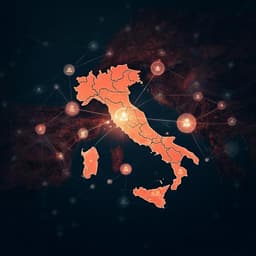
Medicine and Health
OCTA as an independent science advice provider for COVID-19 in the Philippines
B. M. V. Jr and R. A. C. Ong
The paper examines how science advice operated in the Philippines during COVID-19, focusing on the independent advisor OCTA Research. It situates the study within crisis governance, where political leaders must rely on science, economic and social advice under high uncertainty. Prior work shows a dichotomy between knowledge producers (academics who perceive high uncertainty) and knowledge users (politicians seeking assured outcomes), creating risks of role conflation when scientists generate knowledge and advise on policy simultaneously. Drawing on post-normal science and knowledge brokerage frameworks (e.g., INGSA), the study explores how independent science advice can reduce perceived uncertainty and inform options without being captured by political processes. Given the Philippines’ relatively small, politically underrepresented science community, the paper investigates how OCTA’s unsolicited, public epidemiological forecasts became influential, the dynamics with formal advisory bodies (e.g., IATF-EID), and the political implications of role conflation. The purpose is to understand how independent advice can function effectively in polarized contexts and to propose approaches for a more independent government science advisory system.
The paper reviews: (1) Formal and informal science advice structures in the Philippines, including the National Academy of Science and Technology (NAST) mandated to advise the President but administratively attached to DOST, the University of the Philippines’ chartered advisory role, and contributions from non-government science academies (e.g., PAASE). The system is diverse, largely ad hoc, and often unsolicited, with many actors simultaneously acting as knowledge producers and users. (2) Disaster Risk Reduction and Management (DRRM) experience as an analogue: studies post-Typhoon Ketsana (Ondoy) and RA 10121 show low uptake of research at national level, more effective advice at devolved/local levels, and lack of mandated academic scientists on DRRM councils, contributing to reactive (rather than risk-based) governance and ‘dampening uncertainties’ for political outcomes. (3) International context: UK’s SAGE and public scrutiny; issues of role conflation and uncertainty management in pandemic advice (e.g., differing R0 estimates from ICL and LSHTM and political implications); post-normal science emphasizing extended peer review and transparent option framing. (4) INGSA’s evidence-to-policy insights showing many countries initially relied on monitoring/surveillance and only later formalized advisory capacity; the Philippines followed similar patterns but without legislation to strengthen science advisory systems. This literature establishes the challenges of uncertainty, politicization, and institutional gaps, motivating analysis of OCTA’s role.
This is a qualitative, analytic commentary and case study of the Philippines’ COVID-19 science advice ecosystem with OCTA Research as focal case. The authors synthesize publicly available materials: government policy timelines and advisories (IATF-EID), OCTA’s fortnightly epidemiological bulletins and projections (R, positivity, hospital/ICU utilization, attack rates), Department of Health (DOH) Data Drop (initiated April 15, 2020), media reports, public statements by officials, and relevant scholarly literature on science advice, DRRM, and post-normal science. The analysis examines evidence synthesis, communication strategies (public advisories, social media, mainstream media), and political dynamics (role conflation, extended peer review in public forums), rather than conducting new empirical measurement or statistical modeling.
- OCTA’s unsolicited, fortnightly public forecasts (beginning April 27, 2020) reduced perceived uncertainty by providing R, attack rates, positivity, hospital capacity, and ICU metrics at national/subnational levels; it issued 76 advisories/updates and became a leading source for public and government.
- The Philippines pursued a suppression strategy (flatten-the-curve) requiring timely epidemiological forecasts to guide graded lockdowns (ECQ, MECQ, GCQ, MGCQ). OCTA provided scenario-based options aligned to this framework.
- Data quality challenges in DOH’s Data Drop (though improving) created uncertainty; OCTA addressed this with multiple-scenario modeling and public transparency, while also calling attention to data limitations.
- Role conflation is systemic in a small science community (≈189 scientists per million); OCTA’s modelers are knowledge producers and, de facto, knowledge brokers. OCTA mitigated this by engaging overseas Filipino scientists and maintaining independence from formal government structures.
- OCTA’s R estimates sometimes exceeded government figures (e.g., 2.3 vs. 2.1 during early 2021 surge), leading to OCTA’s recommendation for ECQ over Easter 2021 (extended to MECQ until April 30, 2021), illustrating how differing interpretations influence policy timing and resource allocation.
- Open/extended peer review occurred largely via social media and public discourse, which can be polarizing; absence of formal peer review mechanisms in government advisory processes heightened politicization.
- Government spokespersons at times sought to limit public dissemination of OCTA analyses, reflecting tensions over independent advice and transparency; public trust is undermined when transparency is lacking.
- Economic planners (e.g., tourism) criticized OCTA projections due to reopening implications; some criticisms were political. Nonetheless, IATF-EID increasingly adopted OCTA’s inputs.
- OCTA’s forecasts anticipated healthcare strain (e.g., surges prompting HPAAC’s call for stricter quarantine) and influenced decisions to avert system overload.
- Compared internationally, the Philippines mirrored many countries’ early emphasis on monitoring and later policy formalization but did not enact legislation to strengthen science advisory capacity, despite prior pandemic preparedness bill proposals.
- OCTA partnered with Go Negosyo to inform business-friendly exit strategies (e.g., vaccination prioritization) and promoted an Alert Levels classification later adopted by government—demonstrating advisory influence and strategic coalition-building.
- Vaccine hesitancy posed a major exit-strategy challenge: OCTA estimated 46% unwilling to vaccinate (Feb 2021); vaccine confidence had fallen from 93% (2015) to 32% (2018) due to Dengvaxia controversy, further politicizing public health decisions.
The analysis shows that independent advisory actors can play pivotal roles in politicized, resource-constrained environments by reducing perceived uncertainty, communicating scenarios, and offering transparent, science-informed options. OCTA’s visibility and regular reporting built public and policymaker engagement, addressing the study’s question of how independent advice can function effectively amid role conflation. However, the same visibility exposed advisors to politicization and accusations (e.g., being ‘alarmist’), underscoring the need for institutionalized extended peer review and clearer boundaries between knowledge production and brokerage. Differences between OCTA and government estimates highlight how data quality and interpretive frameworks shape policy timing (e.g., lockdowns), with significant social and economic consequences. The UK’s SAGE experience illustrates the political costs of uncertainty and role conflation; in the Philippines, the absence of formal structures and small expert communities amplify these challenges. The findings imply that strengthening transparent advisory mechanisms, fostering independent ‘challenge’ functions, and embedding academics within devolved DRRM-style councils could improve consensus-building and trust. OCTA’s strategic partnerships (e.g., with SMEs) and communications suggest pathways to align health and economic objectives in exit strategies, particularly around vaccination and risk-calibrated reopening.
The paper contributes a case-based analysis of how an independent group (OCTA) became a dominant science advice source during COVID-19 in the Philippines, demonstrating both the value and political risks of independent, public-facing advisory work in a small, polarized science-policy ecosystem. It proposes: (1) institutionalizing independent, transparent science advisory mechanisms with clear separation of knowledge generation and brokerage; (2) leveraging DRRM structures by appointing academic representatives at all governance levels and supporting them with multidisciplinary teams and citizen scientists; (3) establishing formal external and extended peer review processes to validate evidence and options; (4) legislating crisis science advisory capacity and pandemic preparedness; (5) strengthening public trust through open data, regular scenario reporting, and risk communication—especially for vaccination policies central to exit strategies. Future work should evaluate advisory models’ impacts on policy outcomes, develop frameworks to manage role conflation, and test mechanisms for effective extended peer review and local-level integration.
This is an analytic commentary rather than an empirical experimental study; it relies on publicly available documents, media reports, and OCTA/DOH datasets, which have known data quality issues. The analysis reflects the constraints of a small national science community with limited formal peer review mechanisms and significant politicization. Open/extended peer review largely occurred via social media, which can bias discourse. The timeframe primarily covers January 2020 to late 2021, and generalizability beyond the Philippines’ political and institutional context may be limited.
Related Publications
Explore these studies to deepen your understanding of the subject.







